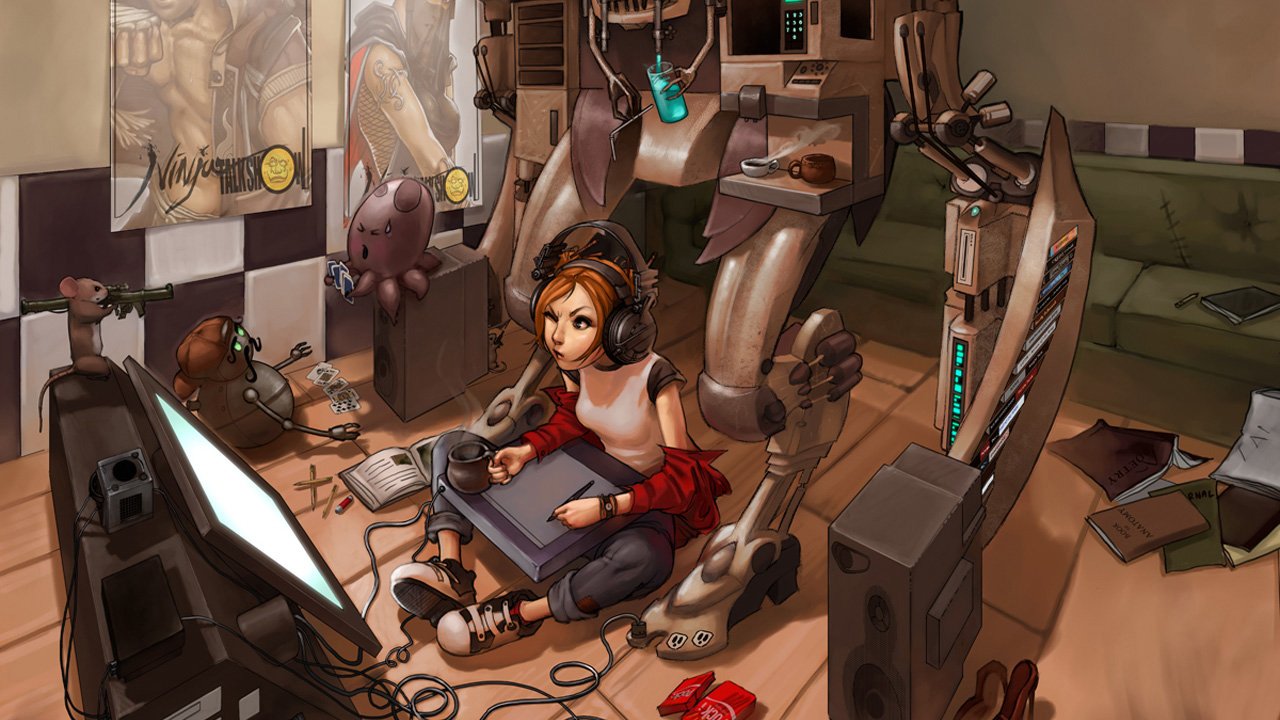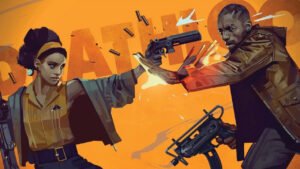Watching a few episodes of Attack of the Show gave me a chance to reflect upon the gamer identity. The show comes off as being so patronizingly sarcastic even details like the show’s canned laughter irked me. The show tells us what we are: 20-year-old white males who laugh at boob jokes and salivate as Olivia Munn eats a hotdog. Is that how the mass media views the gamer demographic? Should we let ourselves be defined by them? Do we have to take this as gamers?
So many questions arise when you think about the essence of a gamer. Who are we? Are we united? Are we culturally defined? Is there a gamer ideology? Are males and females seen as equals? Are we political? Are we being listened to? Do we have agency within society? Are we a threat to the social order? Can we affect change in the world? Working as a video game journalist and having met a number of game developers, players and personalities, I can tell you we are a diverse group. We are so diverse that any label, any misconceived stereotype should have a tough time sticking. Why then are gamer stereotypes so prevalent?
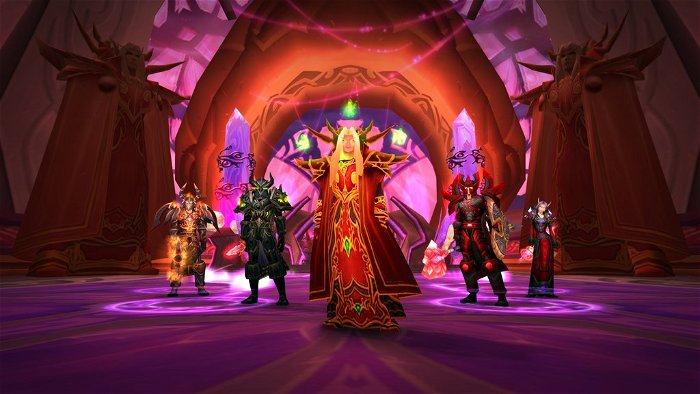
Attack of the Show is not the culture that I know. These are not the gamers I’ve grown up with. This is not the experience I’ve had. Everything presented to the viewer comes from a misconceived stereotype about the kind of person who would play a video game. The immature content of the show reflects the immature audience they are targeting. It becomes such a patronizingly, sexualized, mind-numbing experience that it’s no wonder so many people believe video gaming have such a negative influence over children and youths. An adult experience is different than a mature experience, and this difference comes from the influence of the gamer that I know.
We are game developers trying to pay the rent. We are community organizers developing social links throughout Toronto. We are secret Street Fighters able to destroy opponents in seconds. We are people who feel too old to play video games. We are people too young to buy Mature ESRB rated titles. We are journalists and writers trying to make our living through our words. We are men and women who have played video games all of our lives. And we are one of the largest yet least recognized demographics in the world. The media sees us as a violent, murder obsessed group enamoured by the glories of warfare and death. There is a soldier in all of us, isn’t there? No, there is not a soldier in all of us.
The question remains: what the hell are we?
This is a question of what we are perceived to be and not a question of what we are. What we are, in my opinion, is ineffable. There are so many of us that a collective identity is impossible to imagine. A few have tried, but ultimately failed to. PS3 spokesman, Kevin Butler at E3 said we are united by a ridiculous obsession with gaming. He rallied viewers under the banner of the God of gaming, saying that we are all equals, while promoting a device targeted specifically to the casual market. Microsoft claims that we are gamers who are in total control of our experiences. The Kinect allows full body control of the gaming experience, but we are placed under scrutiny by conditions of the device’s privacy regulations. The eye of Big Brother is always watching. Development studios like Square Enix believe that the West is a macho-obsessed market who wants strong protagonists, busty females and little in the way of character development in their games. Namco, another Japanese developer, recently scrapped efforts to appeal to the Western demographic. They stated that we were impossible to please even after they attempted to appeal to our macho ways.
Adult, teen, youth, child, man, woman, boy, girl; gamers. We are all placed under ill conceived categories by the various companies that facilitate our play. We are willing to stand under them for shelter, but no one believes that they will last. The gamer identity is ambiguous, and this ambiguity can lead to disasters, especially when certain groups are corralled and others are left out in the rain.
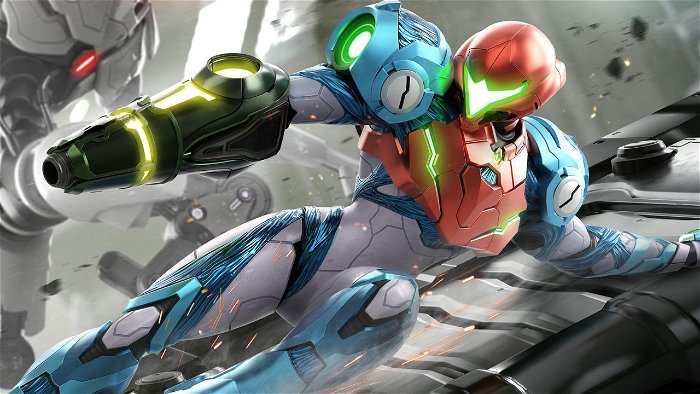
Take for instance Team Ninja’s handling of the Metroid series. They destroyed Samus Aran, a female hero valued for her strength of character. She was once viewed as a role model because of her strengths and because of her departure from the blatant sexualization seen in many other female protagonists. Team Ninja took away her suit, they took away her power and they left her defenceless unable to fend for herself. They literally stripped Samus of all of the great things about her character in the belief that it would appeal to the main demographic of gamers, adolescent teen boys. They essentially alienated one half of the world’s population by destroying Samus Aran.
Gamers are male and female, men and women, equal in all ways. Gamers are of all races and cultures, religions and beliefs, yet we see a targeted focus in marketing and the nature of game development. This gamer banner under which some of us stand has been falsely generated by marketing groups and misconceptions; and no one has a strong enough voice to combat it when confronted. The gamer identity has been solidified in the form of a 20-year-old male sitting by a large television. That is not the gamer that I know.
Attack of the Show was merely the catalyst for the expulsion of a year’s worth of pent-up rage over this identity crisis. Gamers seem unable to decide what they really want to be. Do they want to have their video games recognized as an art form? Do they want to simply play games for their entertainment value? Do we care what people think of us? Is the gamer identity something real?
Escapist Magazine’s feature Extra Credits has an amazing video series on diversity in games. They believe that if we are to escape from this stereotype, we and development studios must be willing to set ourselves apart. They say that if gamers demand more mature content they will ultimately receive games that are more intellectual and able to articulate mature themes to audiences, yet it’s never that simple.
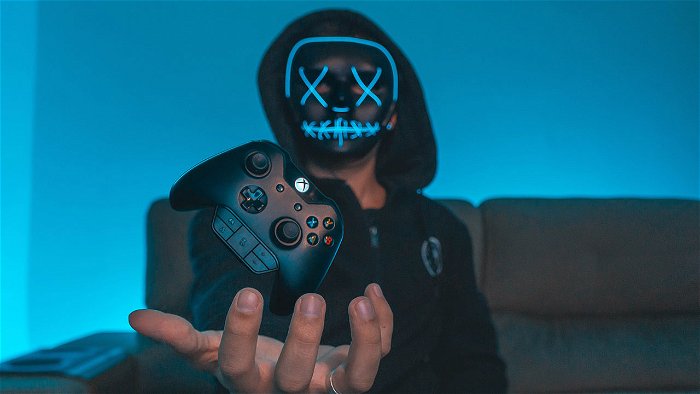
Roland Barthes, a French post-structuralist, wrote, “The reader is the space on which all the quotations that make up writing are inscribed without any of them being lost; a text’s unity lies not in its origin but in its destination.” The subjective response of the audience is held, in many forms of literary criticism, as the most important aspect of any successful piece of writing. Many literary critics view the reader as the ultimate end. They believe that the reader should have the final say in all analysis and criticism of a work. With the birth of the reader comes the death of the author, so too does the birth of the gamer signal the death of the video game author.
Barthes then writes, “Yet this destination cannot any longer be personal: the reader is without history, biography, psychology; he is simply that someone who holds together in a single field all the traces by which the text is constituted.” Like the reader, the gamer is a medium through which the video game experience interacts with the real world. We are a diverse group each individually having their own tastes and specific genres which they enjoy to play. Once we enter into a virtual realm we lose our agency to the video game author-God, yet it is our presence that brings a video game experience together. At once we have complete agency over the virtual experience, yet we are also being controlled by it. The gamer is perceived to be an audience not an active participant.
This is a systemic problem faced by the gamer. Taste differs so wildly in aesthetics, game play and narrative, that no single game can make everyone happy. Gamers are everyone and no one. The gamer identity has become such a confluence of people that we suffer from it. The gamer label becomes placeless, an unknown force controlled not by the individuals that make up gamers as a whole, but by the authors and developers whose content defines them. We have no concrete identity, so we look to others to find definition.
Spending so much time talking to developers and gamers alike, I’ve witnessed the extreme diversity in video game culture. Geeks. Nerds. Dorks. L33T. N00B. Otakus. Gamers. There are so many of us out there, yet we all go by our own labels. Diversity, it seems, is more what divides rather than what unites our collective identity. Gamers have an identity crisis, but it’s a healthy illness. No art form, literary style or aesthetic can pinpoint a single archetype they can collectively identify with. Gamers are driving force behind an entire culture of their own, whether it’s an experience shared between friends or one played on a solitary screen.
